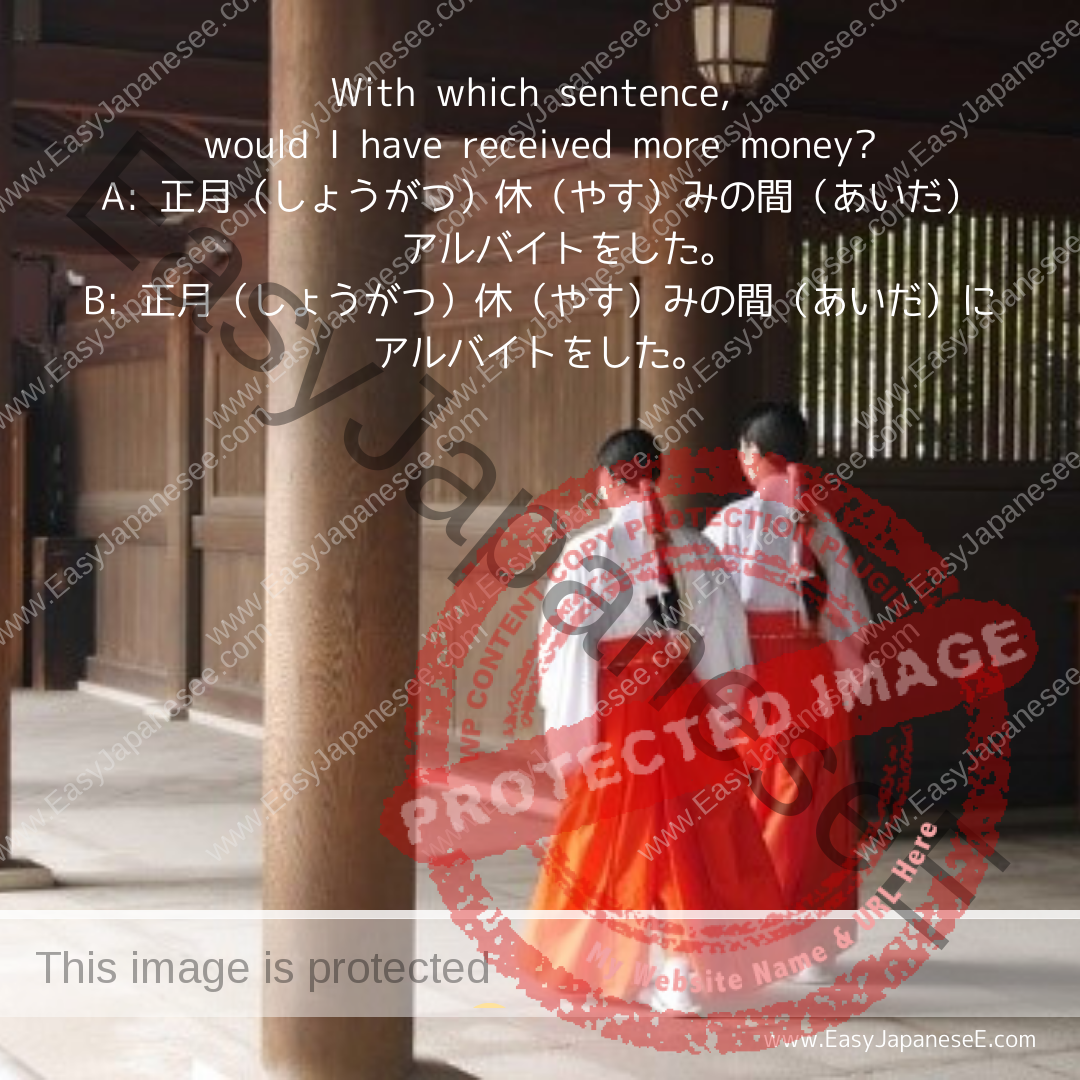Today’s Grammar Item: ~あいだ / ~あいだに
Today’s Question
With which sentence, would I have received more money?
A: 正月休みの間アルバイトをした。
B: 正月休みの間にアルバイトをした。
Connection
- [noun]+ の + 間(に)
- [durational verb dictionary form] + 間(に)
- [momentary verb てform] + いる + 間(に)
Meaning
- ~あいだ … means that the action … takes place for the whole duration when the condition/action ~ is continuing
- ~あいだに means that the action … takes place at one point while the condition/action ~ is continuing
Because of the meaning difference, sometimes you need to choose between あいだ and あいだに.
(✔)あめがふっている間、きょうしつにいました。
(✖)あめがふっている間に、きょうしつにいました。(△)あめがふっている間、掃除しました。(The sentence is OK, if you kept cleaning from the moment it started to rain until it stopped raining.)
(✔)あめがふっている間に、掃除しました。
examples
学生の間、アメリカにいた。
⇒ I was a university student in America.
学生の間に、アメリカに行った。
⇒ While I was in a university, I went to (visited) America.母が留守の間、私がごはんを作りました。
For the entire period when my mother was not home, I cooked all the meals.母が留守の間に、私がごはんを作りました。
While my mother was not home, I cooked some meals (and other cooked as well).夏休みの間、日本に行きます。
I’m going to spend the entire summer holiday in Japan.夏休みの間に、日本に行きます。
I am going to Japan during my summer holiday.息子が学校にいる間、掃除をしよう。
⇒ While my son is at school, I will keep cleaning the house.
息子が学校にいる間に、掃除をしよう。
⇒ I will clean the house before my son comes home from school.赤ん坊が寝ている間私も寝よう。
⇒ I will stay lying in bed while the baby is asleep.
赤ん坊が寝ている間に私も寝よう。
⇒ I will (try to) sleep while the baby is asleep.バスを待っている間、音楽を聴いていました。
I was listening to music throughout the time when I was waiting for the bus.バスを待っている間に、音楽を聴きました。
I listen to music while I was waiting for the bus (but did other things too).
Answer to Today’s Question
A: 正月休みの間アルバイトをした。
= I had a casual job for the whole duration of New Year’s holiday.
B: 正月休みの間にアルバイトをした。
= I had a casual job (once or more times) during the New Year’s holiday.
So the answer to the caption question is A as it is likely that I worked more days/times than described in B.

